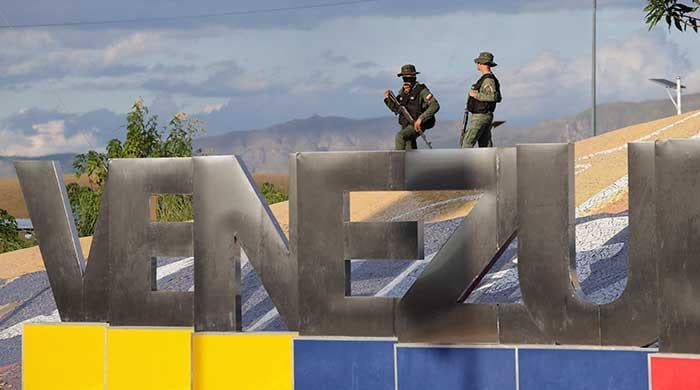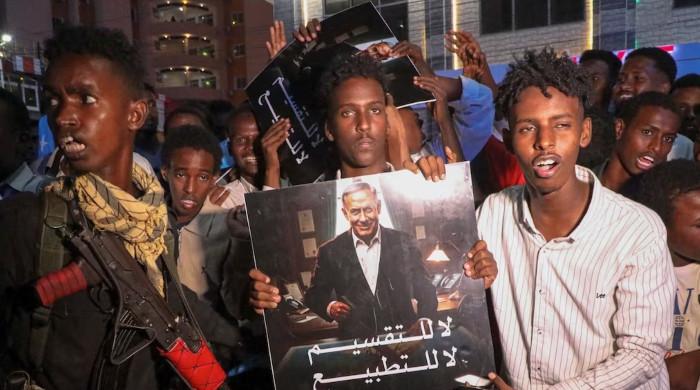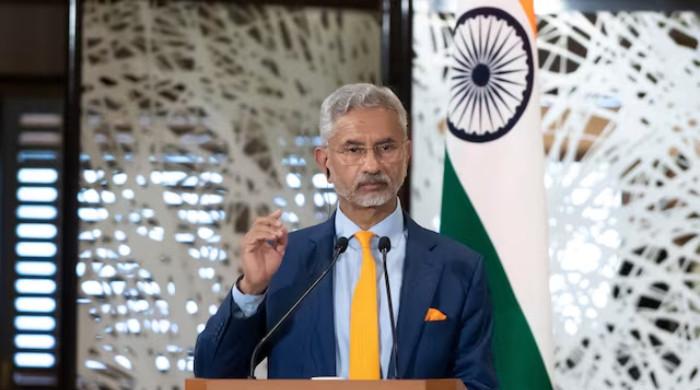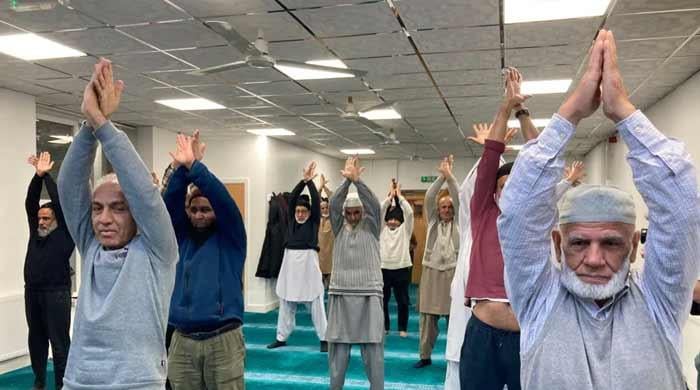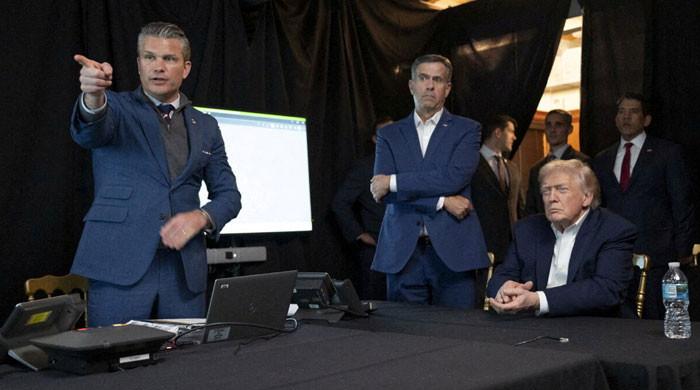Pakistani scholar presents Islamic analysis of Last Supper at Oxford University
Iqbal spoke at the biblical conference which was attended by religious scholars of various faiths
August 25, 2017
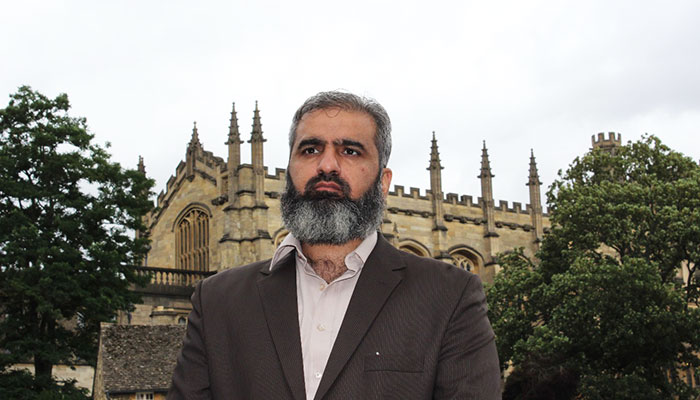
LONDON: A Pakistani religious scholar and serving army officer has said that Muslim scholarship needs to open up its minds and engage with the Western religious scholarship to promote a better understanding of Islam.
Malik Rashid Iqbal, a serving Pakistan Army pilot from Jhelum, was invited by Oxford University’s Saint Hilda's College to present his research paper "Islamic Analysis of the Last Supper from Quran, New Testament, and the Dead Sea Scrolls” on the basis of five-pronged juxtaposition approach.
The faculty was more concerned about the impact of this approach to cross-examine biblical traditions and invited Iqbal for cross questioning.
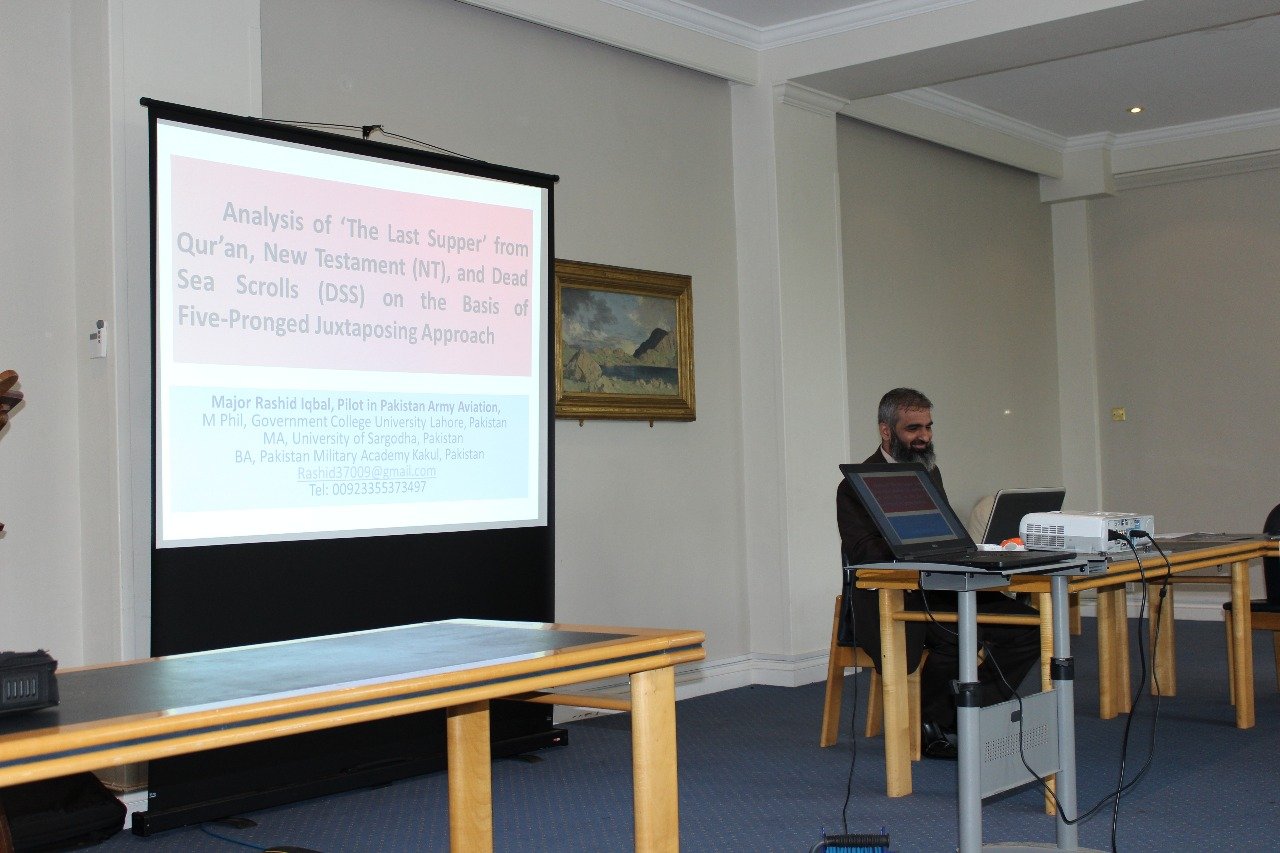
Iqbal spoke at the biblical conference which was attended by religious scholars of various faiths. He said that he learned after meeting Christian and Jewish scholars that while many misconceptions about Islam’s history existed, the western scholarship was open-minded in correcting itself and learning new perspectives of Islam.
He also said there was a need for Muslim scholars and academics to be equally forthcoming and moderate in their approach.
About his interests in religious scholarship, the Army major said he developed an interest in Islamic research in 2008.
“I was deeply concerned about slow Muslim scholarship response with respect to modern religious developments, such as on the impact of the Dead Sea Scrolls on the religious theology of monotheistic religions: Judaism, Christianity and Islam. I observed that Christianity and Judaism have attempted to solve many mysteries."
"Christianity resolved the enigma of the date of the Last Supper and Judaism confirmed to the world that their scriptures are updated once compared with the oldest found. Muslims also have an obligation to cross-examine Dead Sea scrolls text to the Quranic verses. Therefore I began working on this and from Quranic verses I found many glaring findings in the Dead Sea scrolls and other scriptures. I brought this into the world notice through suggested five pronged juxtapositions.”
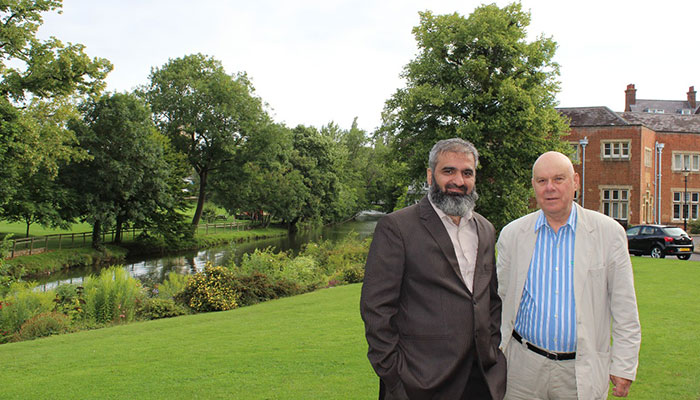
He said that serving as a pilot, it occurred to him that he should turn his mind towards Islamic history “as a religious obligation to exercise my mental acumen and capacity to defend accusations of Western minds, I believe Muslim scholarship is slow to this aspect”.
“I had a lot of discussions with both scholarships. In Oxford, these scholars knew a lot about our religion and accepted many points. In Pakistan, I had the discussion with a panel of three Islamic studies professors at an elite Pakistani university. I found them more concerned on how I could do this? They were concerned about my background rather than what I had found and what I had come up which was liked by a lot of western scholars.”




